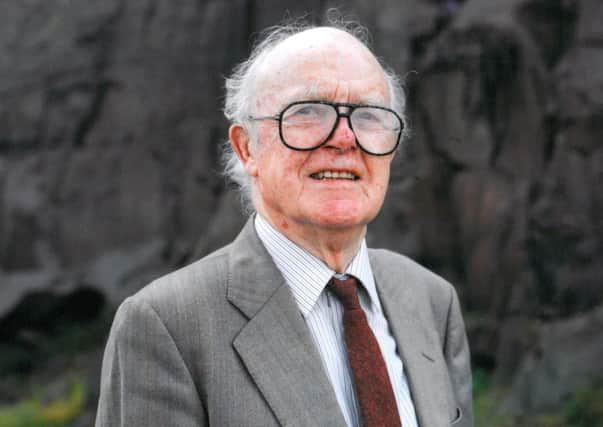Obituary: Professor Nigel Walker, 97


Nigel Walker was born on August 6, 1917, in Tientsin, China, where his father was British vice-consul. The family lived there for ten years, until the threat of invasion by the Japanese prompted his father to go into the wool business in Karachi while the rest of them returned to Edinburgh.
He went to Edinburgh Academy, where he was Dux in 1935, and then to Christ Church, Oxford, where he read classics.
Advertisement
Hide AdAdvertisement
Hide AdHe became a civil servant, but on the outbreak of war, he joined the Cameron Highlanders and later transferred to the Lovat Scouts. He became weapons training officer at Dunbar and later part of the bodyguard to the Royal family when they were at Balmoral.
He saw action in Italy but was shot in the leg, which took him off the front line for the rest of the war.
During his 11 years at the Scottish Office in St Andrew’s House, he had nine different jobs. The most useful for his future was a spell in the Scottish Home Department, where he dealt with various aspects of crime.
But he also wrote a PhD on The Logical Status of the Freudian Unconscious and a book, A Short History of Psychotherapy.
And when he took a sabbatical, he managed to get an honorary fellowship at Nuffield College, Oxford. He must have impressed, because when the reader in criminology retired, he was invited to apply for the post and was appointed.
One of his interests was the relationship between crime and mental illness. His history of the insanity defence (Crime and Insanity in England Vol 1) was responsible for the award of a D.Litt by Oxford University and an Honorary Fellowship of the Royal College of Psychiatrists. He set up a research unit to follow up mentally abnormal offenders, which later became the Oxford Centre for Criminology.
In 1973, he was appointed Wolfson Professor and director of the Institute of Criminology at Cambridge. He served on various working parties and Home Office committees, the most important of which were the Floud Committee on the Dangerous Offender and the Butler Committee, whose recommendations were responsible for the setting up of secure psychiatric units in each region of the country. He retired in 1984 but continued to write and teach. His book Dangerous People (1996) is still on the reading lists of criminology courses today. He wrote 15 books in all, and an annual Cambridge lecture is named after him.
He continued climbing in the Dolomites until well into his seventies. In 2003, he moved back to Edinburgh to be near the rest of the family. After his wife died in 2007, his health began to fail, spending his last months in St Raphael’s Care Home. He is survived by two sisters, one daughter, two grand-daughters and four great-grandchildren.